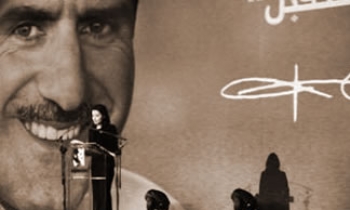YANGON, Myanmar (AP) — Myanmar's ruling junta restored Internet access but kept foreign news sites blocked, partially easing its crackdown as a U.N. envoy arrived in Thailand on Sunday to rally neighboring governments around demands for democratic reforms in the country.
The junta cut Internet access Sept. 28, two days after troops opened fire on peaceful protesters and images of the crackdown were plastered on Web sites. Internet service was intermittently restored earlier this month.
Foreign news Web sites, including the BBC and CNN, however, remained inaccessible along with blogs and overseas-hosted dissident sites, which had provided many inside tightly controlled Myanmar with their only information about the pro-democracy protests.
U.N. envoy Ibrahim Gambari arrived in Asia on a trip to coordinate the region's efforts to negotiate a solution in Myanmar, but declined to comment on his mission to reporters at Bangkok's airport late Sunday, saying he would speak after meeting with the Thai foreign minister on Monday.
Earlier this month Gambari met with Myanmar junta leader Gen. Than Shwe during a four-day visit, urging the government to end its crackdown on protesters. He also met twice with detained pro-democracy leader Aung San Suu Kyi.
His negotiating efforts have not yet resulted in a dialogue between the government and opposition. Myanmar's government has said Than Shwe is willing to meet with Suu Kyi "personally" if she gives up her confrontational attitude and renounces support for sanctions against the military regime.
Authorities in the country relaxed a nighttime curfew to cover four hours — from 11 p.m. to 3 a.m — starting Saturday night. It was initially 9 p.m. to 5 a.m.
The concessions, however, came amid reports that the government continued to detain dissidents.
On Saturday, security forces arrested four prominent political activists who went into hiding to escape a government manhunt after leading some of the first major marches several weeks ago, Amnesty International said.
Secretary of State Condoleezza Rice said the arrests "clearly demonstrate that there needs to be an international presence on the ground," referring to Gambari's trip.
The country's state-controlled media said Sunday that a Japanese journalist who was killed during the protests was to blame for his own death, and was not targeted.
Kenji Nagai, 50, a video journalist for Japan's APF News agency, was among at least 10 people killed in the Sept. 26-27 crackdown, when soldiers fired automatic weapons into a crowd of pro-democracy demonstrators
"This was an accident. The journalist was not deliberately targeted," said an editorial in The New Light of Myanmar newspaper, a junta mouthpiece. "The fact that the Japanese journalist was among the protesters amounts to inviting danger."
Video footage of Nagai's death, broadcast around the world, appeared to show a soldier shooting the journalist at close range.
After meeting Thai officials, Gambari is set to travel to Malaysia, Indonesia, India, China and Japan before returning to Myanmar.
The United Nations has spearheaded an international effort to push Myanmar's military, which has ruled the country since 1962, to halt its crackdown and enter negotiations with detained National League for Democracy party leader Aung San Suu Kyi.
Myanmar's military leaders say the only way to bring change to the country is to follow the junta's seven-step "road map" to democracy.
The road map is supposed to culminate in a general election at an unspecified future date. But so far only the first stage — drawing up guidelines for a new constitution — has been completed, and that took more than a decade. Critics say the plan is a ruse to allow the military to keep power.
The regime says 10 people were killed in the clashes and 2,100 were detained during the most recent protests, but diplomats and dissidents say that the toll is much higher, and that as many as 6,000 people were taken into custody.
Also on Sunday, Myanmar held a state funeral for late Prime Minister Soe Win, who died Friday at 59 after suffering from what relatives said was leukemia.









